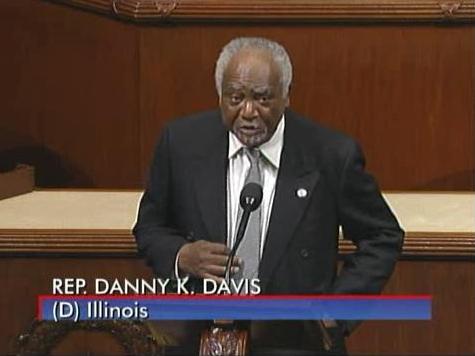Ilankai Tamil Sangam29th Year on the Web Association of Tamils of Sri Lanka in the USA |
|||
 Home Home Archives Archives |
Three House Floor Speeches re Anniversary of End of Warby US Congressional Record, May 17 & 18, 2012
Marking the 3rd Anniversary of the “End of Civil War in Sri Lanka’ Congressman Danny K Davis (D), Illinois, delivered in the 112th Congress on the Legislative Day of 17th May, 2012 Thank you Madam, Chairman. It is my pleasure to rise today, to note the 3rd Anniversary of the ending of the civil war in Sri Lanka. On May 19, 2009, a new era – an era of peace began in this country, an era of hope, an era of possibility and an era of justice with movement towards reconnection and reconciliation. Unfortunately implementation of this new era of hope seem to be slow in coming. And it still seems to many Tamils in the country and throughout the diaspora who have lingering fears that the governance of the country will remain closed and not as democratically operated as they would like to see and that justice demands.
Sri Lanka is a highly centralized state. The lack of control of areas that we take for granted such as the police, the use of land and the education system are often cited as being one of the causes of the civil war. It is reported that even areas not affected by war suffer from neglect by Colombo and distant government officials who make arbitrary decisions, as its frequently noted by the World Bank and others. Tensions continue to exist between the Sinhalese who control the government and the Tamils who consider the North and East as their traditional homeland. It is unfortunate that after hostilities ended on the battlefield, they still seem to exist in many of the same ways that occurred before the war actually broke out. It is my hope that Sri Lanka would be able to work through it difficulties so that this beautiful country can experience the peace and stability its citizens rightly deserve. The peace and stability its citizens rightly deserve. I thank you, Madam Speaker. http://youtu.be/7JWrRfLSfVM ----------------------------------------------------------------------------- HONORING THE THREE YEAR ANNIVERSARY OF THE END OF THE 26-YEAR-LONG CIVIL WAR IN SRI LANKA -- (Extensions of Remarks - May 18, 2012) SPEECH OF HON. MICHAEL G. GRIMM OF NEW YORK IN THE HOUSE OF REPRESENTATIVES FRIDAY, MAY 18, 2012
----------------------------------------------------------------------------- REMEMBERING THE THIRD ANNIVERSARY OF THE END OF THE CIVIL WAR IN SRI LANKA HON. JEAN SCHMIDT OF OHIO Friday, May 18, 2012, GPO's PDF Mrs. SCHMIDT. Mr. Speaker, I rise today to remember the third anniversary of the end of the civil war in Sri Lanka. Although the war ended on May 19, 2009, 90,000 Tamil war widows in the north and east continue to struggle to resume their lives without their husbands. Many have not been able to return to their original homes and must cope with disabilities, both their own and their children’s, caused by shelling and the lack of medicine and intentional starvation at the end of the war. They have returned to a devastated land in which there is little remaining infrastructure and few jobs and which is occupied by a military force whose soldiers do not speak their language. Making a return to normal life even more difficult is the lack of accountability for their husbands’ deaths and the horrors these women and their children underwent at the end of the war, including physical, sexual, and gender-based violence. Sri Lanka’s Lessons Learned and Reconciliation
Commission did not adequately deal with
accountability by its armed forces.
At its March, 2012 session, the U.N. Human
Rights Council called on Sri Lanka to ‘‘take all
necessary additional steps to fulfill its relevant
legal obligations and commitment to initiate
credible and independent actions to ensure
justice, equity, accountability and reconciliation If Sri Lanka does not take up this task immediately, there must be international action to provide accountability. This is why, Mr. Speaker, I am a co-sponsor of H. Res. 177, which calls for an international investigation into what occurred in Sri Lanka at the end of its civil war. I urge all my colleagues to support this resolution.
| ||
 The President of Sri Lanka started talks with the Tamil National Alliance, the party that has won all elections in the North and East since the end of the war more than a year ago. Unfortunately these talks seem to have bogged down, and are not progressing as was anticipated.
The President of Sri Lanka started talks with the Tamil National Alliance, the party that has won all elections in the North and East since the end of the war more than a year ago. Unfortunately these talks seem to have bogged down, and are not progressing as was anticipated.